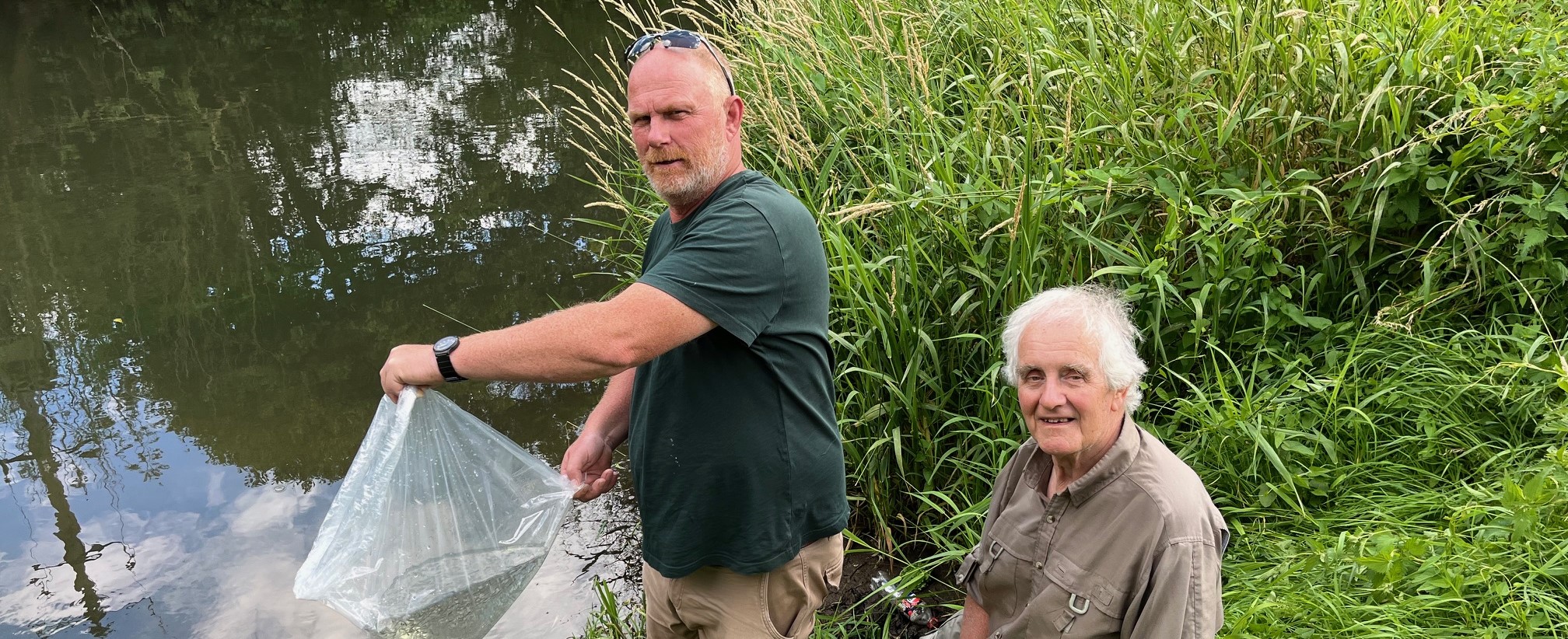
Anglers Against Pollution
Angling Trust criticises the government’s new Water Restoration Fund as inadequate and demands more robust measures to deter polluters
The Angling Trust has described the government’s recent announcement of a new Water Restoration Fund as inadequate and tokenistic. The new scheme is intended for waterway restoration projects and is to be financed by just £11 million in penalties for environmental breaches by water companies, yet this is only a fraction of the fines handed out to law-breaking water companies.
In 2023 alone, the water regulator OFWAT announced it was expecting to levy £70 million in water company fines for breaches of environmental targets, while the Environment Agency claims to have secured £141 million in fines from the sector spread across 56 prosecutions since 2015. Individual water companies have been forced to pay record fines for pollution and misreporting in recent years including £90 million by Southern Water in 2021, and £20 million by Thames Water in 2017.
Since January 2022, the Angling Trust has been at the forefront in advocating for the creation of a ‘National River Restoration Fund’ to ensure that fines directly aid the ecosystems they’ve damaged, rather than be swallowed up by the Treasury as a windfall tax. However, the Trust’s proposals were for all water company fines to be included in the scheme.
Angling Trust Head of Policy, Martin Salter, who first raised the proposal with ministers two years ago said: “The polluter pays principle is not a pick and mix concept. Of course, polluters should be fined and made to put right the damage they have caused wherever possible. But this half-hearted approach, allocating just a fraction of the money collected by Treasury in fines, is at best tokenistic, and the amount to be returned to fund environmental improvements is pitifully inadequate.”
Jamie Cook, CEO of the Angling Trust, commenting on the establishment of the new Water Restoration Fund, said: “While this announcement represents progress, the amount allocated barely begins to address the extensive damage wrought by water companies. Anglers, who witness first-hand the devastating effects of illegal sewage pollution on our waterways, have long-awaited measures that not only deter harmful practices but also facilitate the restoration of our rivers and still waters. Ideally, such a fund would be unnecessary if the water companies did their jobs properly and stopped polluting our rivers with their sewage.”
Stuart Singleton-White, Head of Campaigns at the Angling Trust, added: “The £11 million fund, falls far short of the comprehensive financial commitment required to truly rehabilitate our freshwater environments. The government’s adoption of our proposal marks a positive step, but enforcement against water companies must increase, leading to more substantial fines. This funding should be directed primarily to support fisheries and communities, which have borne the brunt of the sewage pollution’s impact.”
In representations to the House of Commons Environmental Audit Committee in January 2022, the Angling Trust wrote:
‘The current focus on river pollution has created increased interest in the idea of allocating the monies from the fines imposed on major polluters to a new, ring-fenced fund for river restoration. Currently, we have the perverse situation whereby a major pollution incident delivers a windfall tax for the Treasury whereas a minor pollution often leads to funds flowing back into the environment and the affected river catchment via an Enforcement Undertaking.’
- The Angling Trust’s Anglers Against Pollution is fighting for healthier rivers and waterways. You can read more and support here
- JOIN ANGLING TRUST & FISH LEGAL TODAY AND HELP US FIGHT POLLUTION
You might also like

New Kennet Hatchery Releases First Reared Fish

Fishing Books for Kids

UK Recreational Catch-and-Release Bluefin Tuna: A step closer to…

MESTER THE MASTER AT FREE SPIRIT MATCH BODDINGTON CLASSIC…

ENGLAND LADIES CARP TEAM MISS MEDAL ON TOUGH LATVIAN…

Angling Trust urges government to go further and faster…

ENGLAND YOUNG GUNS LEAD THE WAY IN HOME NATIONS…

AMAZING ENGLAND COMEBACK SECURES EURO CHAMPS BRONZE

ELLIOT BAGS THIRD NATIONAL WIN AT MARSTON!

PATIENT APPROACH WIN WOMEN’S NATIONAL FOR LEANNE!

Take a Friend Fishing
27th July to 1st September…









